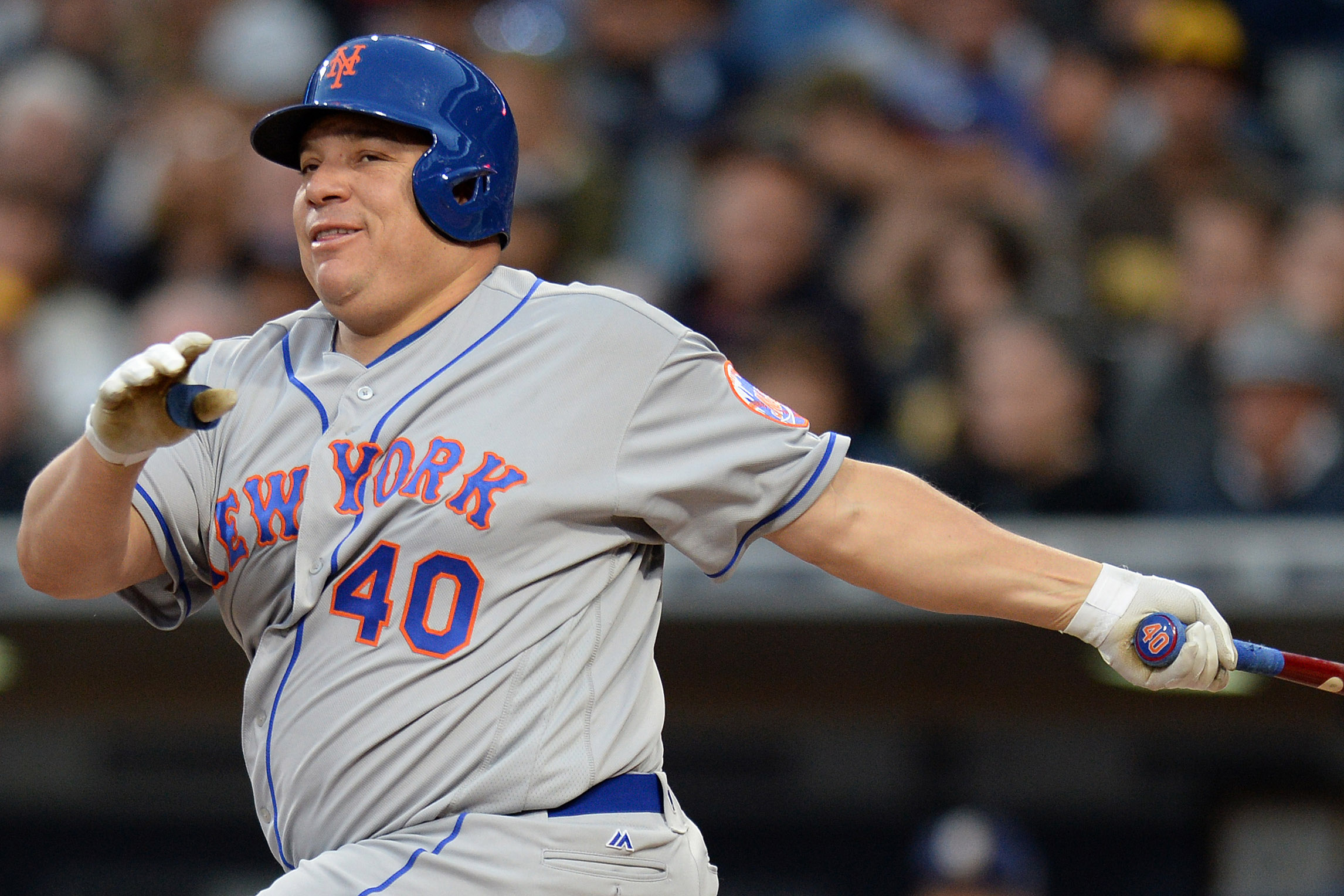It’s been a bit hard watching the Mets these last few weeks—the team looks disjointed, still struggling through injuries and the parade subsequent call-ups. It’s harder still, I imagine, to play like a cohesive unit when the team’s very members are constantly in flux. But despite the loss of Harvey, the Mets’ pitching staff has remained one of the team’s saving graces. Watching deGrom pitch a complete game shutout on Sunday, in which he also got a hit of his own then scored all the way from first, really warmed my heart’s innermost cockles. (The fact that he shut out the Phillies was, of course, icing.)
We all know deGrom is a talented pitcher, but seeing him round the bases was also a reminder of that enchanted day back in May when Bartolo Colón hit his first career home. And while, yes, a single is different than a home run, de Grom’s performance was yet another continuation by the Mets’ starting rotation of the statement Colón made with that fateful swing: having a designated hitter is silly, and is bad for the game of baseball.
Colón’s home run was window into a parallel universe, a glimpse at what might have been had the draft chips fallen differently. Including the 2016 season Colón will have played 19 seasons of major league baseball, with only 3.5 of them for National League teams. His half season as an Expo in 2002 was also his only time in the NL while under the age of 40.
Across his 16 seasons in the American League, Colón had a total of 61 total plate appearances; for contrast, as a 2015 Met he had 64. So while this was the first home run of his career, he really hadn’t had a lot of chances to swing for the fences before that, particularly when he was younger in what might be considered his physical prime. Of course it’s just speculation, but if we take into account his foul ball at over 100 MPH, alongside his batting practice home run, I can’t help but think the baseball world has been robbed of some Big Sexy magic over the years.
And as far as the Mets go, Colón isn’t even the best hitting pitcher on the team right now. Matz is batting .167, Syndergaard .147 with two home runs, and even what turned out to be a seriously injured Harvey was hitting .136. To say that Syndergaard has a higher slugging percentage than several fielding members of the team (among those who’ve appeared in a comparable number of games and otherwise) and is tied for home runs with D’Arnaud and De Aza might seem more like a cause for tears than an argument for league policy, but that’s for another article. The fact that Matz, Syndergaard, de Grom and Harvey have all had exclusively Mets-based major league careers, and as such have routinely stepped up to the plate, is undoubtedly a contributing factor in their abilities to hit.
I’m not arguing that mid .100s batting averages are something we should be jumping up and down about. Nor am I suggesting that a pitcher’s ability to hit should weigh significantly on how we judge his value as a player. Being on the mound requires a set of specialized mental and physical skills, and its these skills that deserve the majority of their, and our, attention. Arguably, though, a catcher’s skills are similarly specialized, and he still has to take up the bat. To decide that a pitcher only has enough mental energy to hone a single physical skill seems to me to be selling a bunch of extremely talented athletes a bit short.
More importantly, though, is that baseball is a game, and the use of the designated hitter is just another of the ways in which the spontaneity, and with that the fun of the sport, is diminished. To pull a muscled slugger from his cave to wallop the ball, then return him back to his hiding place is almost like a macrocosmic doping, in each turn making baseball look more like a controlled performance than the lively sport it can be. And let’s face it: it’s not as if the MLB needs to be doing more to feed into notions that baseball players are just aging men with bad pants and some esoteric skills, or that a baseball player need not be a well-rounded athlete.
Of course occasionally, when it’s rally cap time, the team needs to send out a slugger. But, hello—that’s what pinch hitters are for! And there is excitement in that decision because it’s not a given; it requires both strategy and sacrifice. While designated hitters allow teams to have their cake and eat it too, a team choosing to use a pinch hitter must weigh its options and take a chance in giving up the player subbed out—thus, the element of surprise remains.
Perhaps American League fans feel differently, and get some other kind of enjoyment from of seeing a slugger trotted out onto the field for an at-bat. As for me, I’d rather have a pitcher go down looking ten times for a chance at that baseball magic on the day he doesn’t. Judging by the way Colón’s home run broke the internet back in May, I think a lot of people agree.

2 comments on “Baseball Magic, or Why Designated Hitters Are Silly”
Comments are closed.